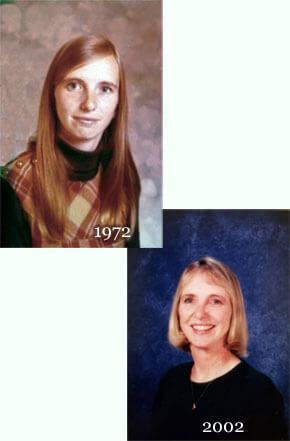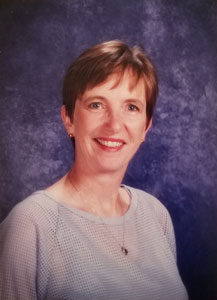
Dear Mrs. Wright
Heart-racing, stomach churning, panic sets in as Jan stares at the blank pages of the former teacher’s lesson plan book. Jan faces her very first class: 43 sixth graders who have already run off a parade of substitutes. Will she stand up to their pranks and gain control of these unruly adolescents? Can she capture her students’ attention and become the teacher they don’t yet know they need?
Inspired by actual student letters, Jan Wright’s heart-warming memoir fulfills a promise she made to her last class of students. Together they encourage a new generation of teachers by seeking answers to the question, “What makes a great teacher?”
Jan reveals what it means to teach as she contrasts the beginning and the ending of her decades-spanning teaching career. Those who have never taught will gain new understanding and respect for this challenging profession. Experienced teachers will delight in memories of their own as they read about Jan’s struggles and triumphs. New teachers will feel encouraged as they envision the journey ahead.
 How this book came to be . . .
How this book came to be . . .
Stacked in the corner of my home office sits a heavy box filled with letters from students, a few class photos, and miscellaneous, no-longer-relevant papers from many years of teaching. The dust covered box serves as a reminder to me of a promise I made.
Far too young and inexperienced to think of keeping anything from the first couple of years of teaching, the collection inside the box does not include mementos from those early days. Memories of my students are all that remain. But, as you will read, they are enduring.
The letters began a few years into my career. One of the many wonderful teachers, from whom I learned all the best techniques for working with students, shared the idea with me. On the last day of school, I asked my students to write a letter telling me what they would remember from our year together. I intended to review the curriculum and highlight students' growth in knowledge. More often than not, though, my students used it as a thank you letter to me. It gave them a chance to say good bye before they moved on to the next academic level, usually at another school.
In June of 2003, I taught seventh graders at Crittenden Middle School in Mountain View, California. I had applied to become a full-time new teacher mentor for the Silicon Valley New Teacher Project; my role as a classroom teacher would come to an end. Along with the possible new job, I had also applied to attend graduate school at night to become a school administrator.
On what became my very last day as a classroom teacher, I told my students about my plans to shift my focus from students, like them, to teachers. I told them they were the experts and asked them for their advice on how to help new teachers, or any teachers, become great teachers. Then, in a moment of inspiration, I told them I planned to write a book about teaching and wanted to include some of their letters in my book.
Summer vacation beckoned; parties and movies spilled out of all the other classrooms. However, in my five class periods of life science, thoughtful seventh grade students wrote in silence using their best handwriting. They stayed on the task and did not disturb each other. Their behavior, beyond extraordinary for pubescent middle schoolers, surprised me. I had indeed become a much better teacher than I had been as a novice in the early 1970’s, but I was astonished by the results of this final stroke of creative teaching genius.
With that ultimate assignment, my students saw a reason to raise the bar to their own highest standards. They believed their work might be published in a book. What a valuable lesson about purpose for all of us who seek to teach!
During the next year, I occasionally visited that campus, working with new teachers there. My previous students, then eighth graders, often came up to me and asked, “Mrs. Wright, have you written your book yet?”
I would answer, “Not yet, but I will.”
They always followed up with the question, “Are you going to use my letter in your book?”
“I’ll let you know,” I’d say.
I had the best of intentions, but life got in my way, as it often does. Within two years, I became a vice principal at two large elementary schools, splitting my days between them. On my path to becoming a principal less than two years later, my husband was diagnosed with terminal cancer. I took early retirement to care for him. We moved to Washington State, and he started treatment at Seattle Cancer Care Alliance.
The box of student letters surfaced when we moved into our new house. My husband asked me when I was going to write “that book.” Once again, I said, “Not yet, but I will.”
Beautiful Whidbey Island in Washington is a place of wonder and awe, inhabited by artists, musicians, writers, and many talented folks. My good fortune led me to join a life-stabilizing choir and to sit next to an extraordinary woman, Dot Read. A retired English teacher, she called herself a writer. At that time, she was organizing a national writers’ conference on Whidbey Island and writing a book. I casually told her about the book I always meant to write. She invited me to the conference and told me to get busy and write.
I finally put my toes in the water, so to speak, by writing a short story. I brought a copy to choir one night and gave it to Dot. She never let up after that. She edited, encouraged, and made connections with other writers for me. That first story became what is now the third chapter in my book.
My husband, Jerry, loved this story about my first teaching experience. Always the first and most positive audience for anything I wrote, he was unrelentingly proud and supportive of my years in education. Even in the last few days of Jerry’s life, he encouraged me to write and to finish the book I started.
Grief then took its toll on me.
When at last, I began to clear up unsorted clutter and old possessions, the box of student letters rose to the top once again. I sat on the floor of my office looking through the years of letters and thought about the students whose lives had touched mine. I remembered my promise to that last seventh grade class and the expectations of my husband.
At first, I wrote when the mood struck me, in between travel adventures and busy retirement activities. By the beginning of 2020, I dedicated long periods of time to write and revisited Crittenden to refresh my memories of that period of time. Then the pandemic came crashing down upon us, and distractions no longer side-tracked my writing progress.
So, at long last, I’ve kept my word. My only wish is that some of my dear students will see this book and remember.

